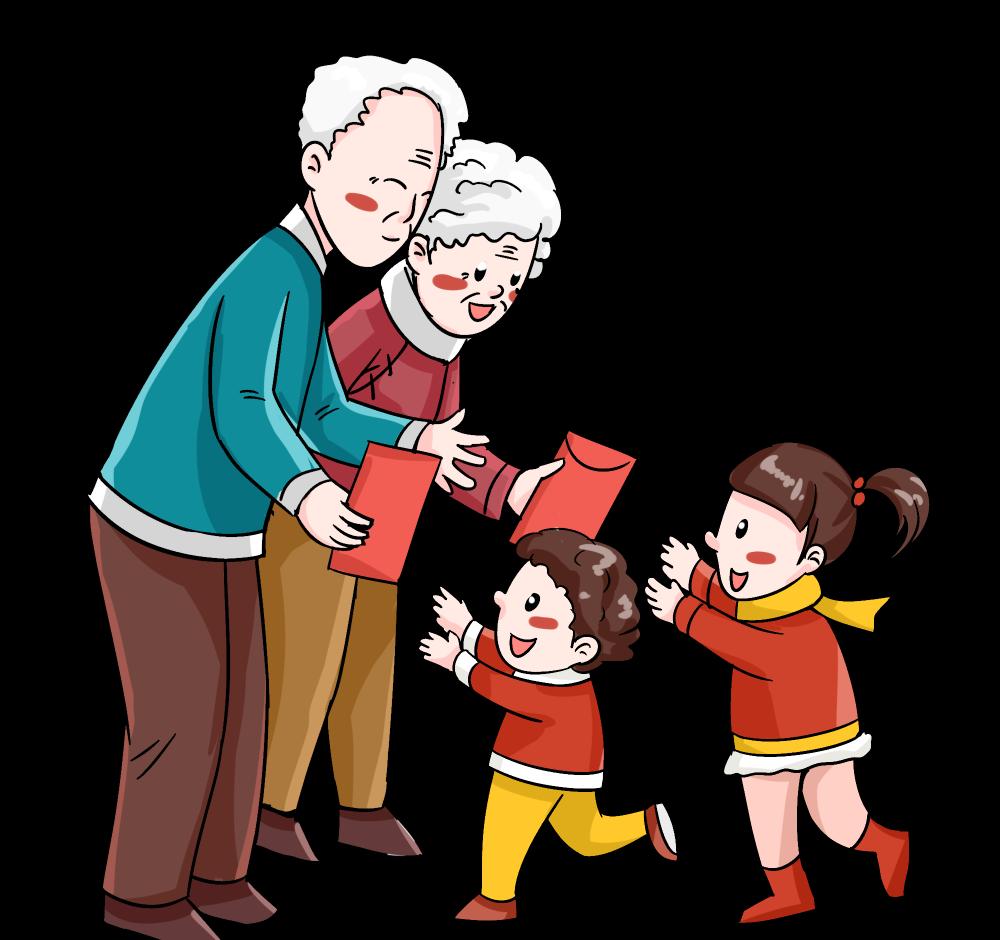Most children have received the money for the New Year, and their parents will say "I help you collect it", but most children know that the final result of "I help you collect" in the mouth of the parents is "I help you pay the tuition".
It is our traditional Chinese custom to distribute the old age money in the New Year, which means that the evil is suppressed by the old money, and the children who receive the pressure money can spend the new year in peace and security, representing the blessings and hearts of the elders.

With the development of society, the family attaches great importance to children, and the amount of money that is pressed is not only inherited from generation to generation, but also the amount of money that is pressed is rising year by year.
In the past, children did not receive much money, but now, each child's old age money, as little as a few hundred, more than thousands, can be said to be a "huge amount".
Therefore, who should keep the child's money, the Civil Code specifically has provisions:
Minors over the age of eight can independently accept the age-pressing money given by their elders, and can also use their own age-pressing money within a certain range, but the parents have the right to intervene.
Minors under the age of eight cannot dispose of the money on their own, and shall be disposed of by their legally-designated representative.
The Civil Code also emphasizes that parents must be aware that the money is a purely profitable act and belongs to the minor himself. In other words, the money can be handed over to the parents for safekeeping, but the parents cannot claim it.
If a minor uses the money for a large amount of money, it needs to be approved or retroactively recognized by his or her legal representative.
The whereabouts of the pressed old money have the support of the law, and it is reasonable to say that we should have no doubt about whether to hand over the old money or not. But behind this is the ability of the child to manage the money independently, and the degree of intervention of the parents.
Regardless of whether to hand over the old money or not, taking care of the old money is a technical work, reflecting the wisdom of parents and the ability of children, so how do we take care of the pressure money.
Some parents may use their children's old money for living expenses; some parents may save for their children; other parents may pay tuition fees for their children and buy daily necessities...
Either way, parents should communicate with their children and tell them where each sum of money is going. This is not only the responsibility of fulfilling a guardian, but also respect for the child.
If you let your child take care of his own money, you can exercise his view of money. For example, when a child wants to buy but can't afford it, he will think of saving money. In this process, children's cognition of money is improved, and they can better understand the difficulties of parents.
The process of saving money is actually the process of delaying the child's satisfaction, which can enhance the child's patience.
As a parent, you must always believe in your child and give him the opportunity to manage money independently. Because Rome was not built in a day, nor was a child's view of money developed in a day.
But some children, although they have reached the age of 8, do not have the ability to manage their own money, if they give them money, they may make some unreasonable consumption: such as playing games, crazy online shopping, tipping female anchors and so on.
In the face of these children, parents can take care of the money with their children. You can guide your child to make a plan for the use of old money. In this process, parents can assess the rationality and practicality of the plan.
In short, on the basis of giving children full rights and trust, it is also necessary to guide children to use the money correctly.
Whether a child should hand over the pressure money, I think this is a false proposition, there is no absolute answer. But as parents, our original intention is to make this pressure money play its maximum value and make the most of it.
Handing in a child's money is not the purpose, the purpose is to cultivate a child with self-management ability and the ability to control money.